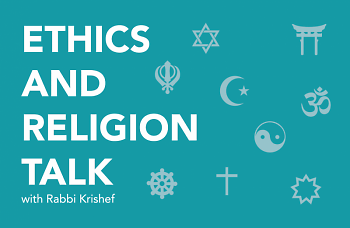Joseph P. asks, “For Christians, Jesus is the Messiah promised in the book of Genesis in the Old Testament. I was wondering if any other religions (Judaism, Buddhism, Hinduism, Islam, etc.) are anticipating the appearance of a Messiah and, perhaps even more important, what criteria will they use to verify that the individual claiming to be the Messiah really is the Messiah?”
Fred Stella, the Pracharak (Outreach Minister) for the West Michigan Hindu Temple, responds:
“Views vary about this subject in Hinduism. There are scriptural references to a divine being named Kalki, who supposedly will appear at some point to help restore order to the planet. But I have never met a Hindu who admitted to believing this was nothing more than allegory. I suspect most would agree that the fate of the world is solely dependent on the consciousness of humanity, and how that consciousness is expressed in action.
“Even if the prediction of Kalki were true, there is nothing in our theology that he would adjudicate any sort of final judgement.”
Linda Knieriemen, Senior Pastor at First Presbyterian Church in Holland, responds:
“I propose that there are criteria which must be met for a figure to be given Messiah status. For starters:
“Wisdom, unconditional and extravagant love for all, an active promoter of peace, living a demonstrable life of service to others, one whose authority is rooted not in self but in the transcendent.
“Messiah disqualifying traits and actions? Leading by fear, disrupting by division, promoting self over others, solving problems through violence, isolation from society.”
Rev. Ray Lanning, a retired minister of the Reformed Presbyterian Church of North America, responds:
“As a Christian, I cannot speak to Messianic hopes and expectations cherished by other faiths. The Lord Jesus Christ warns us that there have been and will be many others who claim to be God’s Anointed Savior (Matthew 23:24), and says that we should not accept such claims. In the long history of revelation, the ‘criteria’ or requirements for Messiah set forth by His prophets were many, and the bar of proof was set very high. When Christ returns, discussion of criteria or credentials will not be necessary. His identity will be a self-evident fact: ‘Behold, He cometh with clouds; and every eye shall see Him, and they also which pierced Him; and all kindreds of the earth shall wail because of Him’ (Revelation 11:7).”
My response:
My tradition takes its understanding of the definition and function of a messiah from the original use and development of the term in the Hebrew Bible. The word “messiah” comes from the Hebrew word mashiah. The verb mashah describes the basis process of anointing items or people to dedicate them to service of God in the Tabernacle or Temple. In the book of Samuel, we find the first instance of anointing being used to consecrate a political ruler (Saul). The same process is used to appoint David and Solomon. Isaiah speaks of anointing in a symbolic way to refer to a non-Jewish King, Cyrus, whom he describes as chosen by God to return the Jews to Israel and restore the Temple. Therefore, the word mashiah, applied to a person, denotes one who is designated by God to serve as a leader. We do not use this term today to refer to spiritual or political leaders.
The Hebrew Bible describes the criteria for a political leader who is to be designated as a messiah. He (or she) must be a descendant of David and Solomon (of the tribe of Judah). In addition, also according to the Hebrew Bible, the messiah must fulfill the following functions:
- The ingathering of the exiles (Jews from around the world will return to Israel). This is the only messianic criteria that has progressed to a significant degree, with the creation of the modern state of Israel.
- All people will acknowledge the oneness of God.
- The advent of world peace and universal justice.
- A universal vegetarian (or vegan) diet. The famous passage from Isaiah 11:6-7 describes animals of prey turning to grazing for food: “The wolf shall dwell with the lamb … the cow and the bear shall graze … and the lion, like the ox, shall eat straw.” While some read this literally, others understand it as a poetic statement of the idea that historic enemies will make peace.
- The rebuilding of the Temple in Jerusalem.
Additional note: The cryptic nature of a passage in Zachariah 12:10 gave rise to a Jewish commentary that refers to a messiah of the tribe of Joseph, who will die in a battle which will reunify the Northern tribes with the Southern Kingdom of Judah, and who is seen as an immediate forerunner of the Davidic messiah.
Some Christian commentaries argue that the historical Jesus was this messiah. However, nowhere in the Hebrew Bible is there a hint that a messiah of the tribe of Joseph will be resurrected or will be identical to the traditional messiah of the family of David.
This column answers questions of Ethics and Religion by submitting them to a multi-faith panel of spiritual leaders in the Grand Rapids area. We’d love to hear about the ordinary ethical questions that come up in the course of your day as well as any questions of religion that you’ve wondered about. Tell us how you resolved an ethical dilemma and see how members of the Ethics and Religion Talk panel would have handled the same situation. Please send your questions to [email protected].
The Rapidian, a program of the 501(c)3 nonprofit Community Media Center, relies on the community’s support to help cover the cost of training reporters and publishing content.
We need your help.
If each of our readers and content creators who values this community platform help support its creation and maintenance, The Rapidian can continue to educate and facilitate a conversation around issues for years to come.
Please support The Rapidian and make a contribution today.
